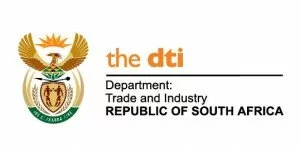 In a move to adopt new ways of attracting investment and growing underdeveloped areas, the Department of Trade and Industry (DTI) is planning to launch 10 Specialised Economic Zones (SEZs) across the country.
In a move to adopt new ways of attracting investment and growing underdeveloped areas, the Department of Trade and Industry (DTI) is planning to launch 10 Specialised Economic Zones (SEZs) across the country.
Some R500 million in funding has already been made available to finance feasibility studies for the planned SEZs and the anticipated incorporation of existing Industrial Development Zones (IDZs) under the SEZ framework.
According to Kaya Ngqaka, the DTI’s chief director of infrastructure and investment support, it is expected that the Specialised Economic Zones Bill, which defines the planned SEZs, will be signed into law later this year.
The aim of the bill will be to address shortcomings of the IDZs that did not perform as well as originally expected.
IDZs were established in 1999 to promote and develop businesses in strategically placed areas.
These hubs were then reviewed in 2006, and it was found that certain weaknesses existed with the IDZ model, with the result that IDZs will now been incorporated as part of the SEZs.
“We realised that the incentives provided for in the IDZ programme could not compete with those of other countries, and there was inadequate funding available for these initiatives,” says Ngqaka.
“There was also a weakness in that, when the IDZs were set up, there was no collaboration and planning between port authorities, roads construction, and so on.”
The bill makes provision for incentives such as a tax allowance programme based on investment in manufacturing as well as exemption from Value-Added Tax (VAT).
Included under the SEZs are the IDZs, Sector Development Zones (SDZs) and free ports.
The IDZs are industrial hubs set up close to airports and sea ports. Examples of IDZs where there are already operations are those at Coega and Saldanha (see the next page).
Ngqaka says the SDZs are also industrial zones, but these hubs will not necessarily be set up close to airports or sea ports. The aim of the SDZs is to assist business owners in not having to export as many raw materials. Instead, it is hoped that these hubs will allow for the raw materials to be manufactured into goods that can then either be exported or sold in local markets. In this way, more jobs and business opportunities will be created.
Free ports have not yet been set up. However, the idea of free ports, which will allow goods to be exempted from customs, will follow the example of those in Mauritius and Hong Kong.
Ngqaka says government wants to use these industrial hubs as a springboard to develop small businesses through skills transfer and trade.
“We also want to prepare these small businesses to meet investors’ international standards,” he says.
Each SEZ will have an operator appointed to it who must oversee the running of the hub and must annually submit a business plan to the minister, projecting its affairs for the next three years.
List your business
Business owners who wish to benefit from the new Specialised Economic Zones (SEZs) should register on supplier databases.
So says Kaya Ngqaka, Trade and Industry chief director of infrastructure and investment support.
“Operators managing the SEZs will know which goods and services exist in those areas and whom to contact.”
Here are a list of targetted zones and services:
- Mthata, Eastern Cape – agro-processing.
- Harrismith, Free State – agro-processing.
- Johannesburg, Gauteng – information, communication and technology.
- King Shaka International Airport, KwaZulu-Natal – agro-processing, aviation and electronics.
- Tubatse/Steelpoort Valley, Limpopo – platinum group metals.
- Musina, Limpopo – agro-processing, mineral processing and trade hubs.
- Nkomati, Mpumalanga – agro-processing.
- Upington, Northern Cape – solar corridors.
- Rustenburg, North West – platinum group metals.
- Atlantis, Western Cape – renewable energy.
